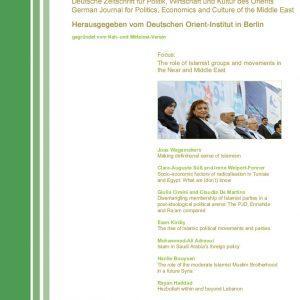Description
In spite of their very different political trajectories after the uprisings of 2011, both autocratic Egypt and democratic Tunisia have seen a wave of Islamist radicalisation over the last few years. One very prominent explanation for this development is widespread socio-economic grievances. This article provides a comprehensive overview of the state of knowledge about the socioeconomic factors related to radicalisation in Tunisia and Egypt and identifies research gaps to be addressed in the future.
Clara-Auguste Süß is a doctoral researcher at the Peace Research Institute Frankfurt (PRIF) and member of the PRIF’s research group “Radicalisation”. Her research concentrates on Islamist radicalisation, political transformation and marginalisation in the Maghreb, focusing particularly on Tunisia.
Irene Weipert-Fenner is a senior research fellow at the Peace Research Institute Frankfurt (PRIF) and holds a PhD in political science from Goethe University Frankfurt, Germany. She works on authoritarian regimes and democratisation as well as on social movements in MENA.




Reviews
There are no reviews yet.